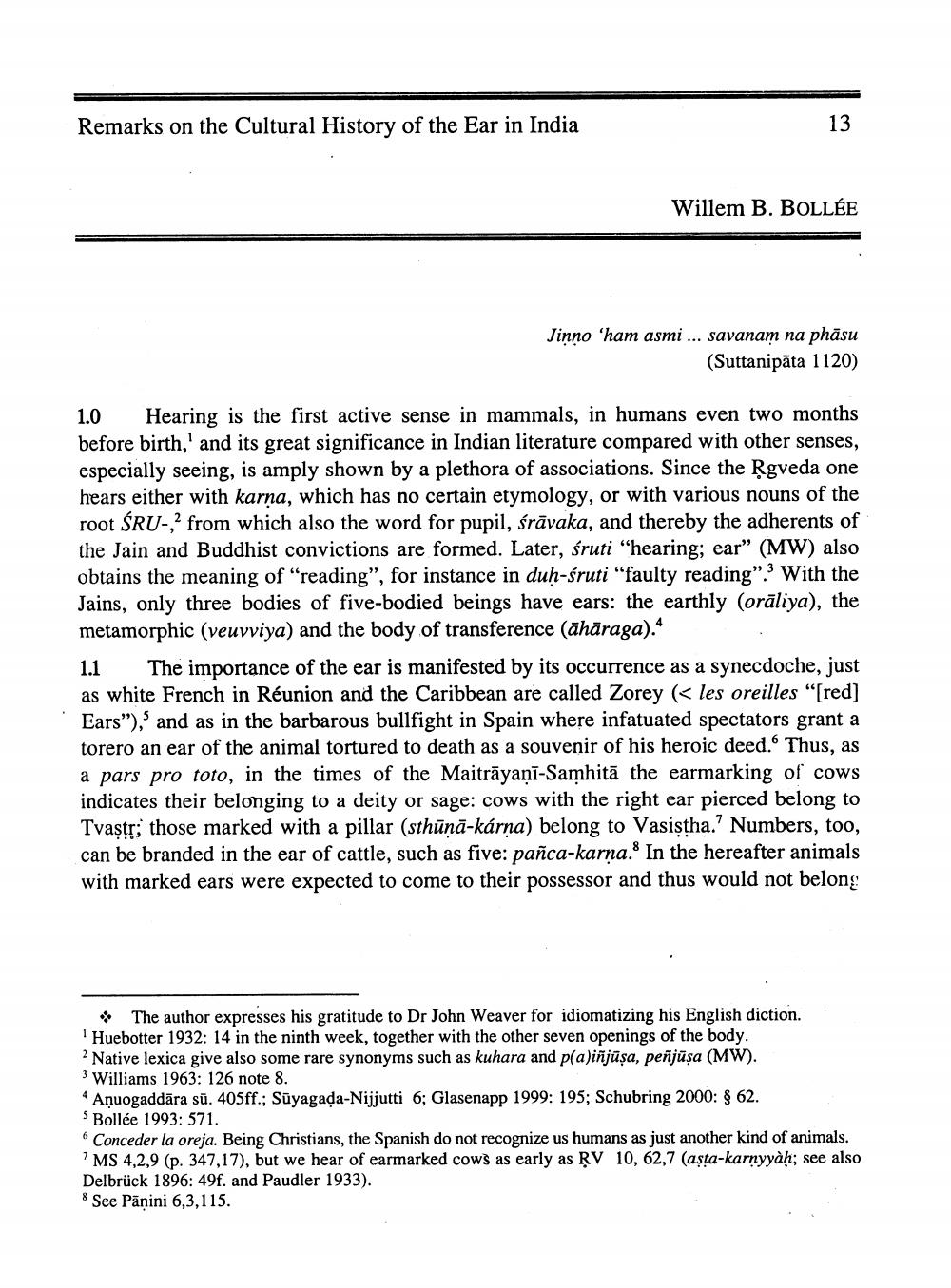________________
Remarks on the Cultural History of the Ear in India
13
Willem B. BOLLÉE
Jinno 'ham asmi ... savanam na phäsu
(Suttanipāta 1120)
*480)
1.0 Hearing is the first active sense in mammals, in humans even two months before birth,' and its great significance in Indian literature compared with other senses, especially seeing, is amply shown by a plethora of associations. Since the Rgveda one hears either with karna, which has no certain etymology, or with various nouns of the root ŚRU-, from which also the word for pupil, śrāvaka, and thereby the adherents of the Jain and Buddhist convictions are formed. Later, śruti "hearing; ear” (MW) also obtains the meaning of "reading", for instance in duh-śruti "faulty reading". With the Jains, only three bodies of five-bodied beings have ears: the earthly (orāliya), the metamorphic (veuvviya) and the body of transference (āhāraga). 1.1 The importance of the ear is manifested by its occurrence as a synecdoche, just as white French in Réunion and the Caribbean are called Zorey (< les oreilles "[red] Ears"), and as in the barbarous bullfight in Spain where infatuated spectators grant a torero an ear of the animal tortured to death as a souvenir of his heroic deed. Thus, as a pars pro toto, in the times of the Maitrāyani-Samhitā the earmarking of cows indicates their belonging to a deity or sage: cows with the right ear pierced belong to Tvastr; those marked with a pillar (sthūnā-kárna) belong to Vasistha.? Numbers, too, can be branded in the ear of cattle, such as five: pañca-karņa. In the hereafter animals with marked ears were expected to come to their possessor and thus would not belong
* The author expresses his gratitude to Dr John Weaver for idiomatizing his English diction. Huebotter 1932: 14 in the ninth week, together with the other seven openings of the body. 2 Native lexica give also some rare synonyms such as kuhara and p(a)iñjūșa, penjuşa (MW). 3 Williams 1963: 126 note 8. * Aņuogaddāra sü. 405ff.; Süyagada-Nijjutti 6; Glasenapp 1999: 195; Schubring 2000: 8 62. Bollée 1993: 571. Conceder la oreja. Being Christians, the Spanish do not recognize us humans as just another kind of animals. MS 4,2,9 (p. 347,17), but we hear of earmarked cows as early as RV 10, 62,7 (asta-karnyyàh; see also Delbrück 1896: 49f. and Paudler 1933). & See Pāṇini 6,3,115.




